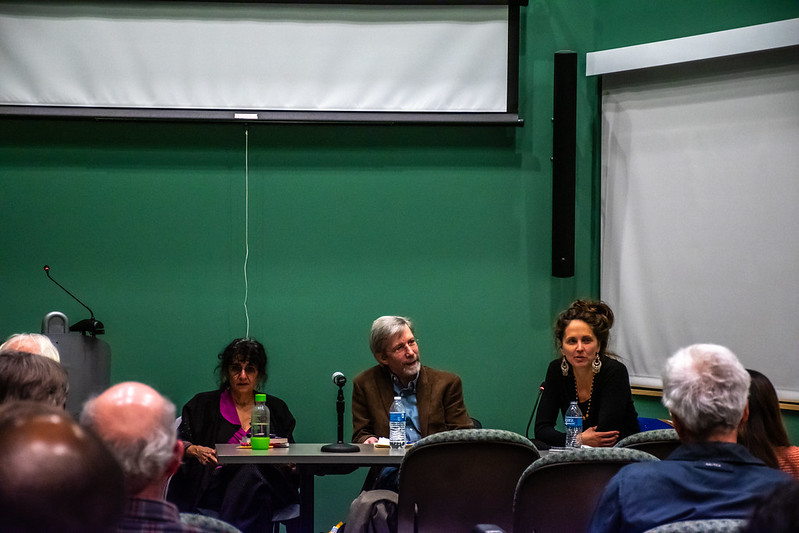In 2009, Marcelo Rivera, a Salvadorian water activist, was found dead at the bottom of a well in his hometown of San Isidro. His death would inspire his younger brother, Miguel, and many other indigenous people to expand the movement to protect their village’s water from contamination of mining chemicals. Eight years after Rivera’s death, El Salvador became the first country in the world to ban mining completely.
Rivera’s story and the legislative changes in El Salvador are told in the book “The Water Defenders,” published in March, 2021 by Robin Broad and John Cavanagh.
This past Thursday, the authors joined Manuela Picq, co-founder of the water defenders’ movement in Ecuador, in a panel discussion led by James K. Boyce, UMass senior fellow for the Political Economy Research Institute.
“The right to a clean and a safe environment is a basic human right,” Boyce said, when introducing the panelists and their cause.
As Cavanagh explained, the chemicals that private mining companies need to extract raw materials, such as gold or copper, create a specific type of acid. When it rains, the chemical runoff ends up in the nearest river.
“Clean mining does not exist,” Picq said, when asked about other alternatives to sustain the mining industry. “It is a myth.”
These chemicals have affected indigenous villages like Rivera’s where the mining industries are based, said Broad. This eventually led to a lawsuit against these companies to stop mining, whose practices left indigenous peoples in those villages without clean, potable water.
The process of getting the Salvadorian government and its people on the water defenders’ side was slow. Cavanagh said it took years to unite likely and unlikely allies to finally achieve a unanimous vote — not against mining, but in favor of protecting water.
The Catholic church played an important role, which shifted in favor of water defense after the assassination of former Bishop Oscar Romero.
Cavanagh said this same pattern of “presidents that won pushing for environmental changes,” is happening in other Latin American countries, like Brazil, Chile and Colombia.
Still, there are other countries like Argentina and Peru whose laws and governments still defend large industrial corporations.
“It’s much more dangerous to be a nature defender than to be a journalist,” Picq said, when describing how difficult it’s been to achieve these changes.
Companies have gone to greater ends to prevent the implementation of laws that regulate and even stop the mining industries. Environmental activists are sometimes framed as terrorists and do not have as many financial resources as large corporations to fight these matters in court.
Picq talked about the fight for nature rights in Ecuador, where the World Bank used $80 million in a project that would lead to changes in the census. This would reshape indigenous territories in such a way that they would be unable to vote in favor of water protection and conservation.
She said that most of the energy produced by these industries is used for the industry itself, while very little is used to bring electricity to the communities.
“The machine is eating itself but also eating everything around it,” said Picq.
All three panelists concluded that Latin American governments are taking a step in the right direction, although it is a lengthy process. These movements start with a small indigenous group but move up to local and federal governments.
“The water defenders are on the rise,” said Broad.
Paulina Ortiz Orive can be reached at [email protected].


















